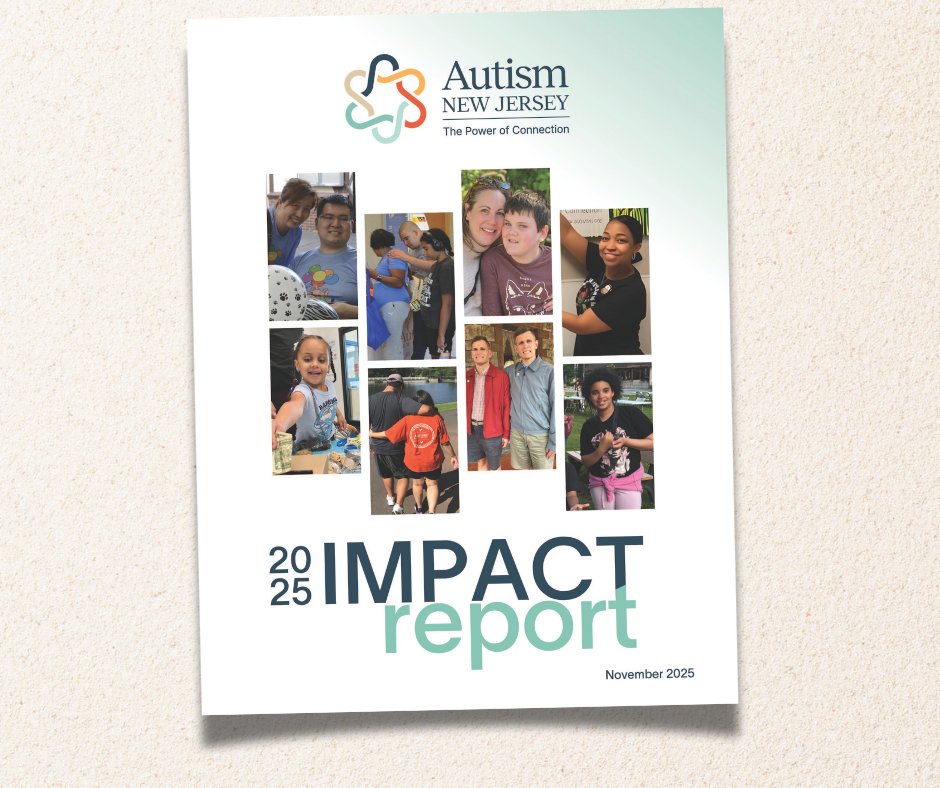State regulations, called the New Jersey Administrative Code, are rules adopted by state agencies in the executive branch of government. Regulations are the rules that explain how laws are carried out and enforced.
The regulations that govern autism and disability policy and service delivery are complex and involve multiple state agencies. A key activity of our Public Policy team is to present compelling reasons why state agencies should adopt regulations that are in the best interest of the autism community. In addition, we regularly review the statutes and regulations governing autism services to facilitate understanding between the State and the autism community, while helping to ensure that the full potential of state policies is actualized.
Public Notices
Department of Human Services
N.J.A.C. 10:77 | Rehabilitative Services for Children (ASD EPSDT Services)
Public comment closed on December 16, 2024 and is currently under review by the Department. The proposed amendments will add a new subchapter which will contain rules related to the provision of Autism Spectrum Disorder (ASD) related services, including applied behavior analysis, for EPSDT (Early and Periodic Screening, Diagnostic and Treatment) eligible individuals. Read Autism New Jersey’s comments here.
Proposed Rules
None at this time.
Recently Adopted Rules
Department of Education
N.J.A.C. 6A:7 | Managing for Equity in Education
This administrative code chapter specifies standards for local district boards of education in establishing policies and procedures to ensure that all students, including those in a protected class, are provided equitable access to educational activities and programs in the school district. These rules expire on August 7, 2030.
N.J.A.C. 6A:9B | State Board of Examiners and Certification
These regulations govern the licensure of educators or candidates required to be certified in an education setting, including Approved Private Schools for Students with Disabilities (APSSDs) and special education in local school districts. It also contains the rules delineating the organization of, powers of, duties of, and proceedings before the State Board of Examiners. These rules expire on April 6, 2030.
N.J.A.C. 6A:14-3.9 and 5.1 | Special Education
These regulations codify a COVID-19 temporary rule modification to allow the provision of related services in limited circumstances to a student with disabilities through telemedicine or telehealth, or through electronic communications, in accordance with the student’s IEP. The amendments also clarify the requirements for the provision of physical therapy services. These rules expire on September 10, 2027.
N.J.A.C. 6A:16 | Programs to Support Student Development
These regulations set the minimum standards for school district to establish policies and procedures and operate programs to support the social, emotional, and physical development of students. Programs to support student development include school health services; physical examinations; intervention and referral services; programs of substance use prevention, intervention, and treatment referral; school safety and security; student discipline; reporting of potentially missing, abused, or neglected child situations; and home instruction and approved alternative education programs. Included in the rules are standards for the delivery of home instruction and school health services to nonpublic schools. These rules expire on June 17, 2028.
N.J.A.C. 6A:23A-16 to 22 | Fiscal Accountability, Efficiency, and Budgeting Procedures
This fiscal code dictates how certain schools, including Approved Private Schools for Students with Disabilities, operate in the state. Some of the factors within this code include tuition rates, administrative caps, and financial oversight by the department. There was a straight readoption of the current fiscal code. These rules expire on October 3, 2031.
Department of Human Services
N.J.A.C. 10:44A | Community Residences for Individuals with Developmental Disabilities (OPIA)
Effective through March 29, 2026. This chapter governs the minimum requirements for the provision of residential services to people with developmental disabilities and applies to a variety of program models, including group homes, supervised apartments, and supported living.
N.J.A.C. 10:46D | Contribution to Care and Maintenance Requirements
This regulatory chapter governs the financial ability of individuals served by DDD and that of their legally responsible relatives to contribute to the cost of care and maintenance when the individual receives residential services from the Division. The amendments are mainly technical, intended to update terminology, correct typographical errors, and provide clarity. The Department made a substantive amendment at N.J.A.C. 10:46D-5.1 to increase the length of time from 60 to 90 days for an individual to comply with care and maintenance contributions before DDD terminates the individual’s services. This change aligns the code provision with New Jersey statute. These rules expire on February 27, 2031.
N.J.A.C. 10:67 | Psychological Services
These regulations govern the policies and the procedures of the New Jersey Medicaid/NJ FamilyCare program related to the provision of psychological services to Medicaid/NJ FamilyCare beneficiaries by psychologists in private practice reimbursed on a fee-for-service basis. Amendments, effective January 2, 2024, are limited to sections 1.2, 1.3, and 3. Section 2.3 is repealed under this rule adoption. These rules expire on November 15, 2028.
N.J.A.C. 10:75 | Psychiatric Residential Treatment Facilities for Individuals Under Age 21
Readopted without changes, expires August 14, 2030.
N.J.A.C. 10:77 | Rehabilitative Services for Children (Background Checks)
These regulatory changes include amendments and new rules related to fingerprint-based criminal background checks for specified providers. The amendments explain the requirements for criminal background checks and detail the completion process for criminal background checks. These rules expire on May 23, 2030.
N.J.A.C. 10:77 | Rehabilitative Services for Children (DMAHS)
Effective through May 23, 2030. This chapter governs the provision of and reimbursement for, medically necessary Medicaid/NJ FamilyCare fee-for-service covered rehabilitative services, specifically, environmental lead inspection and hazard assessment services and mental health rehabilitation services for children, youth, and young adults, in accordance with the New Jersey Medicaid/NJ FamilyCare fee-for-service program rules, including those mental health rehabilitation services provided under the auspices of the Department of Children and Families’ (DCF) Children’s System of Care (CSOC).
- This rule adoption does not include the Medicaid ABA benefit for children with autism, ages 0-21, that was announced by DHS in April 2020. Autism New Jersey anticipates a forthcoming update to N.J.A.C. 10:77 to include regulations related to the Medicaid ABA benefit for children.
NJ FamilyCare Comprehensive Demonstration (1115 Comprehensive Demonstration)
On March 30, 2023, CMS approved a renewal of New Jersey’s FamilyCare 1115 Comprehensive Demonstration, which governs the operations of significant components of New Jersey’s Medicaid program and Children’s Health Insurance Program (CHIP). This is the third five-year renewal of New Jersey’s 1115 Comprehensive Demonstration approved by CMS, which will expire on June 30, 2028.
Division of Consumer Affairs
N.J.A.C. 13:42B | Board of Applied Behavior Analyst Examiners
These regulations govern the implementation of P.L. 2019, c.337, which created the Board of Applied Behavior Analyst Examiners and establishes the licensing requirements to practice behavior analysis in New Jersey.
Historically Significant
DMAHS Statewide Transition Plan (DHS)
The Statewide Transition Plan provides a framework to align New Jersey Medicaid’s home and community-based services (HCBS) to the 2014 federal rule from the Centers for Medicare and Medicaid Services (CMS) that state programs must provide full access to the benefits of community living and offer services in the integrated settings.
- Statewide Transition Plan Addendum #3, October 4, 2022
- DHS/DDD Statewide Transition Plan Submitted to CMS
DOE Announces Job Code for Board Certified Behavior Analysts










